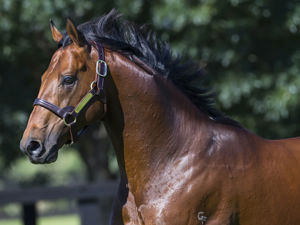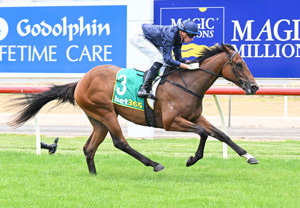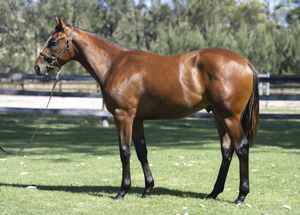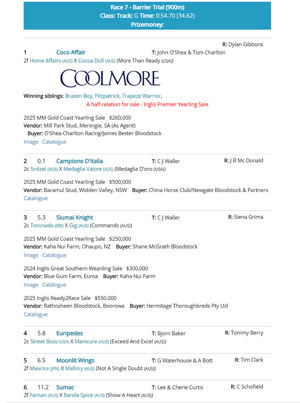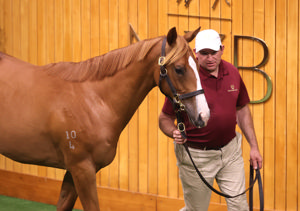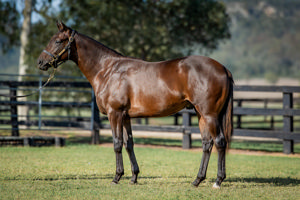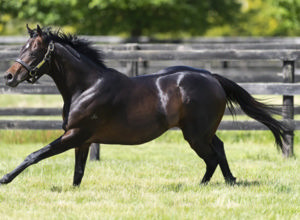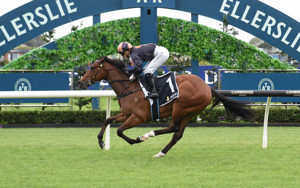With the start of the breeding season fast approaching, Thoroughbred Breeders Australia and the state associations wanted to provide you with an update on the latest protocols for the movement of mares across state borders. TBA has been working closely with state governments to try to ensure breeders have options to get their mares covered.
Commercial transporters are well set up to move mares and foals, many having made improvements to service and safety. Transport companies are able to navigate the protocols that are in place.
However, for those of you wishing to move mares with farm-owned trucks or vehicles, you will be required to have the right permits and there will be a number of protocols you or your employees will have to follow.
Since last year’s breeding season, state governments have tightened up the rules for movement between states. This is largely due to the increased transmissibility of the Delta variant of COVID-19.
It is important that any breeder moving mares across state borders follow the protocols and requirements of their permits closely. Any outbreak of the virus that was linked to the movement of mares would jeopardise the allowances that governments have made for our industry.
Essentially, breeders have been given an allowance to use the freight permit system for travel into Victoria, Queensland and NSW. However, to qualify for this exemption, farms need to use a vehicle with a Gross Vehicle Mass of more than 4.5 tonnes. Nearly all trucks commonly used by breeders would meet this restriction, though many floats are unlikely to do so.
The TBA strongly suggests breeders only use their own truck or, if using a float, have evidence that it has a Gross Vehicle Mass of more than 4.5 tonnes.
Transport Of Mares Between Victoria And NSW
Anyone wishing to transport a mare across the Victorian state border must comply with the following protocols:
1. Apply For A Permit
If you a travelling from NSW, you must apply for a Specified Worker (Low Workplace Interaction) Permit. This permit will be required for anyone coming from an orange, red or extreme risk zone. Please note the whole of NSW is currently recognised as an extreme risk zone.
2. Adhere To The Following Conditions
If you’re eligible for a Specified Worker (Low Workplace Interaction) Permit and you’ve been in a red or extreme risk zone (such as NSW) at any time after the red zone or extreme risk zone commencement time in the last 14 days, you must:
If a Victorian resident travelling for work outside Victoria:
- quarantine at your accommodation when not working or while traveling for work
- get tested for COVID-19 at least once every 3 days during the time the permit is valid
- only leave your vehicle or the accommodation where you are quarantining when working to undertake the work that makes you eligible for the specified worker permit (e.g. driving and unloading), and to: access toilet and bathroom facilities, pay for fuel, purchase essential items, purchase takeaway food and drink, depart Victoria from an airport, seaport or railway station.
- must not carry any other person as a passenger in the driver’s cabin of a vehicle while traveling for work outside of Victoria, other than for the purpose of providing specified work in an occupation included in the Specified Worker (Low Workplace Interaction) List
- minimise contact with others when not traveling for work outside of Victoria
- wear a mask indoors and outdoors whilst traveling for work outside of Victoria
If you are a non-Victorian resident in Victoria (i.e. Coming from a NSW farm for a cover in Vic):
- quarantine at accommodation when not working
- get tested for COVID-19 at least once every 3 days during the time the permit is valid
- you must not carry any other person as a passenger in the driver’s cabin of a vehicle, other than for the purpose of providing specified work in an occupation included in the Specified Worker (Low Workplace Interaction) List
- only leave isolation to undertake the work that makes you eligible for the specified worker permit (e.g. driving and unloading), and to access toilet and bathroom facilities, pay for fuel, purchase essential items, purchase takeaway food and drink, depart Victoria from an airport, seaport or railway station
- minimise contact with others when inside Victoria
- wear a mask indoors and outdoors unless an exception applies
- only remain in Victoria for the period of time necessary to provide the work.
Other conditions apply. These will be clearly listed on your permit and as part of your application. To get a permit, you must declare that you accept these conditions. (apply here).
3. Carry Copies Of COVID Safe Workplan And COVID Safe Freight Plan
At all times, drivers should carry a copy of your farm’s COVID Safe Workplan. They are also required to carry a completed COVID Freight and Transport Plan (they will need to complete one of these for each separate trip). TBA have developed templates for your use:
COVID-19 Safe Plan Template For Farms
COVID-19 Safety Plan Template For Freight And Transport
4. Have A Permit To Enter NSW
The NSW government still requires those travelling from interstate for work to apply for a permit to enter the state (apply here).
Transport Of Mares Between Queensland And NSW
Anyone wishing to cross the QLD state border will have to abide by the following rules and restrictions:
1. Complete A Border Declaration Pass
Breeders who are QLD residents and wanting to transport mares privately across the NSW border (ie. not with a commercial transport company) or to any other COVID-19 hotspot, will require a valid Queensland Border Declaration Pass (Freight and Logistics – F Pass) to re-enter the state.
Breeders coming from a designated hotspot outside of QLD (such as NSW) wishing to transport a mare to a QLD-based stallion will also have to obtain a valid Queensland Border Declaration Pass (Freight and Logistics – F Pass).
You can apply for an F Pass here.
2. Adhere To Mandatory COVID-19 Testing
If coming or returning from a COVID-19 hotspot (such as NSW), drivers will have to produce evidence of a negative COVID-19 test result received within 7 days prior to entering Queensland.
For QLD residents returning home, or if you are staying in QLD for an extended period of time, you must continue to be tested for COVID-19 on a rolling 7 day cycle until at least 14 days have passed since you have been in a COVID-19 hotspot outside of the border zone. Example: if your driver has evidence of a COVID-19 test four days prior to crossing the border, they must continue to be tested for COVID-19 every 7 days. This would mean that their next test would be within three days of arriving back in QLD and then every seven days after until 14 days have passed.
3. Carry Copies Of COVID Safe Workplan And COVID Safe Freight Plan
At all times, drivers should carry of copy of your farm’s COVID Safe Workplan. They are also required to carry a completed COVID Freight and Transport Plan (they will need to complete one these for each separate trip). TBA have developed templates for you to use:
COVID-19 Safe Plan Template For Farms
COVID-19 Safety Plan Template For Freight And Transport
4. Keep Written Records
All drivers must keep written records of who they have come into close contact with while in QLD. If you are resident, you must keep the records for at least 14 days after returning home. These records should include: date, time, location and the person’s name and phone number.
5. Minimise Contact With Others
Queensland Residents: drivers who are QLD residents are not required to quarantine upon returning home but they must have no or minimal contact with the Queensland community while actively entering back and forth from COVID-19 hotspots ie. New South Wales. When travelling, they must only exit the vehicle to access rest stop facilities, refueling, and activities directly related to the purpose of the trip such as the unloading of a mare, or to meet required regulation activities such as workplace health and safety or fatigue management.
Non-Queensland Residents: while in QLD, non-residents must only remain in QLD for the time necessary to complete the essential activity, have no or minimal contact with the Queensland community while in the state and only exit the vehicle to access rest stop facilities, refueling, and activities directly related to the purpose of the trip such as the unloading of a mare, or to meet required regulation activities such as workplace health and safety or fatigue management. You must only stay in overnight accommodation when necessary to fulfil fatigue management requirements. No recreational activities are to be undertaken while in the state.
6. Have A Permit To Enter NSW
The NSW government still requires those travelling from interstate for work to apply for a permit to enter the state.
This can be applied for here.
|

